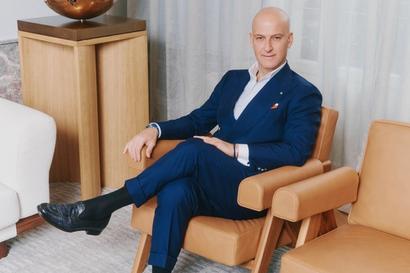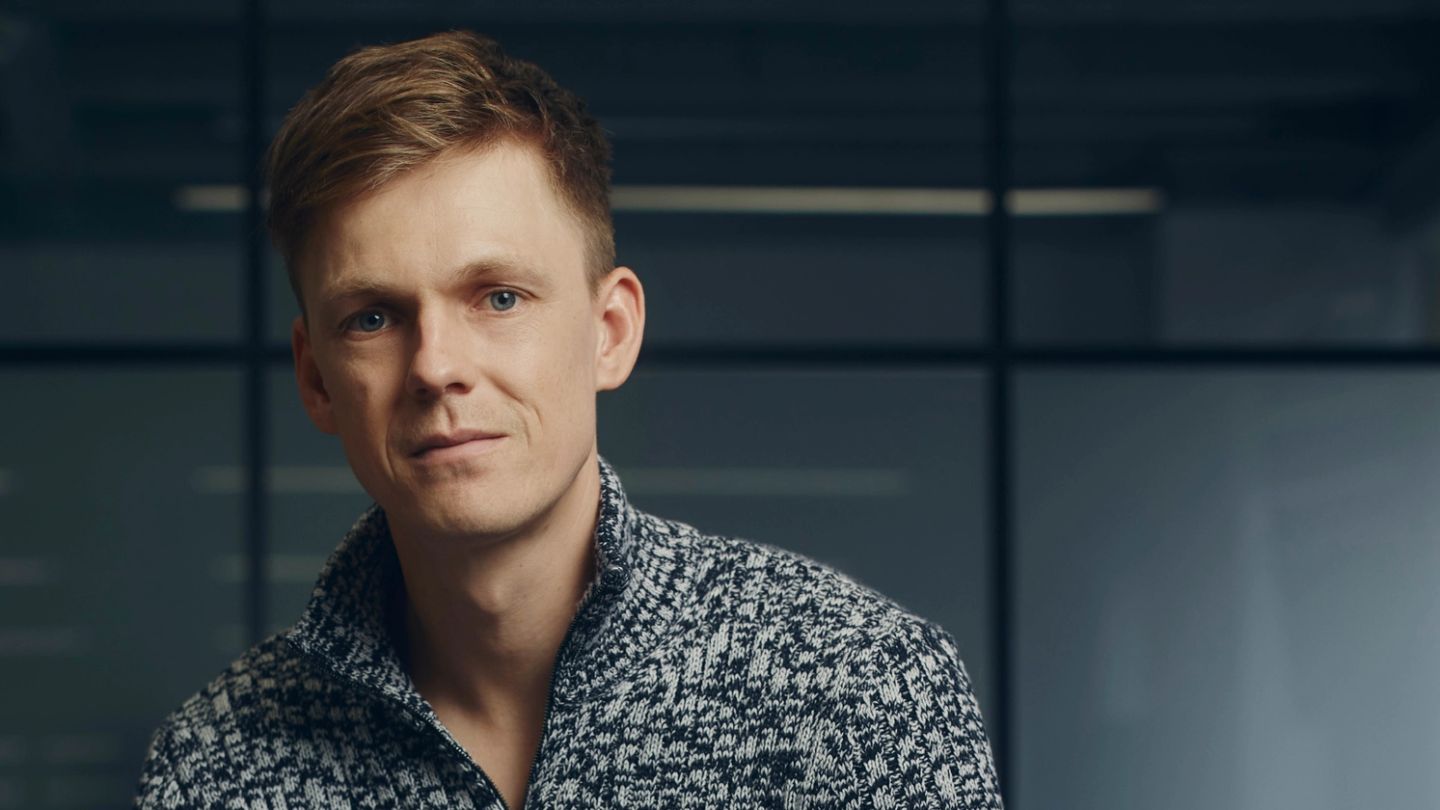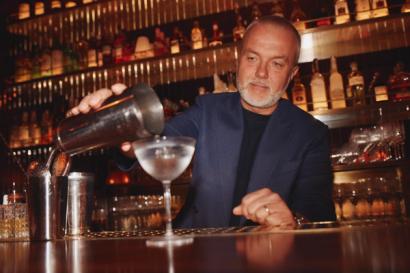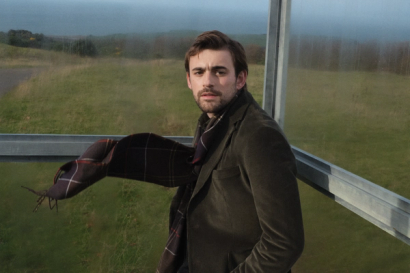

“Those that know how to create content have the power” — Caspar Lee
The founder, creator and VC on influencers, quitting YouTube, and the power of storytelling
- Words: Joseph Bullmore
- Photography: Greg Funnell
Caspar Lee started out in the bath. The first video he posted on his fledgling YouTube account in 2010 — the cosmic domino, in many ways, which kicked all that followed into motion — had him comparing, for reasons now lost even to scholars, the merits of baths and showers. Specifically, he seems to remember now, it asked the question: “Which one is more painful?” — prompting the inevitable response: I think you’re doing them wrong.
Sitting now in the boardroom of the London offices of Influencer, one of his several companies, Caspar reflects on the moments of strange serendipity that got him to this point. Like the time a friend spammed that first adolescent YouTube account with clicks, causing it to get deleted by the powers-that-be — and meaning he started a new one from scratch, this time with videos that actually worked. Or the time he was banned from a school hockey tour in his native South Africa for drinking a beer or two — and found himself with a couple of spare weeks in which to head to London and collaborate with a group of other young YouTubers. “Without those moments, I probably wouldn’t be sitting here today,” he says now with a laugh.
Brioni knit £1,380 -brioni.com; TUDOR Pelagos Ultra 43mm Titanium, £5,070 -tudorwatch.com
That first video was posted on the 16th September 2010 — a moment roughly five years into YouTube’s existence. We have all been boiled like frogs in the great saucepan of content in the decade-and-a-half since, and so it’s worth remembering just how different that time was. Instagram was still two years away. The term ‘influencer’ had not yet been coined. The video function on most phones was rudimentary to the point of uselessness. And almost no-one spoke about algorithms or virality.
The YouTubers that were most successful back then were those whose videos still felt charmingly homemade — often teenagers talking down the lens in their bedrooms, or competing in playful challenges with other YouTubers. (It seemed to help, apparently, if they all had cherubic bouffants of blonde hair.) We might now attribute this proto virality to a sort of ‘parasocial’ appeal — the same impulse, we are now earnestly told, behind the rise of the podcast and the livestream.
“I was sick to my stomach before each interview...”
By the time he had turned 18, within two years of starting out, Caspar had amassed several million followers. His most widely viewed videos saw him interview celebrities in a winningly casual set up (anticipating, perhaps, the likes of Chicken Shop Date and Hot Ones and doubtless plenty more poultry-based interview formats). “Celebrities always collaborate with content creators today,” he says now, “but back then it was really hard to convince them. The schtick was that I thought they were my friends, when of course they weren't,” he says. “Which I thought was a natural, fun way to do it, and that's why those videos did so nicely.” Ed Sheeran, Dwayne Johnson, Justin Timberlake, and Kevin Hart all appeared on his channel in the early-to-mid 2010s. “I was sick to my stomach before each one,” he admits now, but the clips racked up millions of views — perhaps, in part, because some of that authentic nervousness is visible on screen. Caspar estimates he made his first million by the time he was 21. (“It was insane”). A few years later, in 2018, he stopped making videos entirely. Filming and posting nearly every day, he says, was “very intense. You’ve got to constantly be at it.”
TOD’S jumper, £795, and trousers, £895, both from tods.com CROCKETT & JONES loafers, £495 - crockettandjones.com; TUDOR Pelagos Ultra 43mm Titanium, £5,070 -tudorwatch.com
Today, Caspar is the co-founder of three successful businesses, each informed by this early experience as a content creator. Influencer.com is a marketing agency for, well, influencers, which was set up by Ben Jefferies and Caspar in 2017. The company acts as a powerful, tech-driven intermediary between brands and creators, and currently has around 180 team members spread between offices in London, New York, Berlin, Saudi Arabia, Dubai, and Amsterdam.
The word “influencer”, Caspar admits, is not a particularly straightforward one. “I would say we work with creators to drive influence,” he says of the company now. “And yes, someone who calls himself an influencer — it generally makes me think of people on the beach taking photos,” he says, although he thinks the peculiarly strong animosity to the profession is fuelled in part by the “mainstream media” — many of whom may grumble that their budgets, reach and significance have all been eaten by disintermediated creators. “And when you're writing about influencers in a negative way, it's going to get more clicks than when you're talking about them in a positive way,” he says.
"You miss one hundred percent of the shots you don't take..."
Alongside Influencer.com there’s MVE Management, which Caspar set up with his flatmate and constant collaborator Joe Sugg in 2018. A partnership with IMG, MVE is often said to be the first company that managed content creators in the same way as more ‘traditional’ talent.
To a young person today, ‘content creator’ must look like an increasingly attractive profession. Many of us are curating and broadcasting our lives publicly anyway. Why not attempt to get paid millions of pounds by brands while we do so? A study last year found that 57% of Gen-Zers would gladly choose ‘influencer’ as their primary profession, with more than 40% of adults overall saying the same. Having gone down that road himself, would Caspar recommend it now to others?
BRIONI jacket, £5,610, and knit, £1,380, both brioni.com; TUDOR Pelagos Ultra 43mm Titanium, £5,070 -tudorwatch.com.
“I think that knowing how to create content is something we should teach young people — and not because we want them all to become influencers,” he says. “But I think it gives you a voice in this world. It’s how you reach people today. Back in the day, when not everyone knew how to write, those who did could get their ideas across — they could convince people to join them, they could launch political movements.”
"Creating content is just a really good business school"
“Today, those who know how to create content have that power,” he says. “Which doesn't mean you need to wield it for politics. It doesn't mean you have to become a massive entertainer. But it means that, if you have a hair salon, say, you can reach more customers. You know how to talk to them. It’s just a really good business school, in a way.”
Caspar is also the co-founder of Creator Ventures, a boutique VC fund that specialises in the consumer internet sphere. It was born out of an investment syndicate of creators like Caspar, who would come in at the same level and valuation as other backers — but could provide added value via their social insights and followings. “We understand that founders really care about social media when they're a consumer internet company, because that's how they reach real inflection points,” he says. In 2022, Caspar’s cousin, Sasha Kaletsky, an Uber and Bridgepoint alumnus, joined Caspar to formalise the syndicate into a VC fund, raising $20 million in Fund 1 in 2022, and $45 million in Fund 2 this year. Their institutional backing comes from the likes of Level Ventures and Sequoia Capital, and their notable investments include Runna — the AI-powered running coach, which exited to Strava in 2025 — and Beehiiv, a growing Substack competitor.
Caspar likes to back founders “who definitely don’t feel like they’ve made it,” he said. “Someone who's okay with pain and okay with working fucking hard, beccause that's what it takes today.” YouTubers, he points out, learn the hard graft early on. This is why millionaire teenagers who made their money in that first YouTube wave often seem to come out as grounded, sensible, entrepreneurial people, he thinks, as opposed to going off the rails like preternaturally rich rockstars or actors, say. In his own case, perhaps, the fact that Caspar was a wildly successful YouTuber is not a quirk of chance or algorithm but a result of character. It seems highly likely that Caspar would have been hugely prodigious in whatever decade or technological moment he was born into. He is that age-old winning combination of diligent and yet open to luck; grounded but ambitious.
“I think a lot about the saying ‘you miss one hundred percent of the shots you don't take,’” he says. “That's something I love. It’s true of venture. But it’s the same for taking meetings and just getting out there, even if you feel like you just want to be at home watching Netflix. You don't know what's going to happen that day. Hopefully it'll be positive. Sometimes it can be negative. But you just don’t know,” he says. “You just can’t tell when these small things are going to have a huge effect on the rest of your life.”
Subscribe to Gentleman's Journal now to receive this issue to your door.
Read next: Gstaad Guy on wealth, self-expression, and gentleness.


